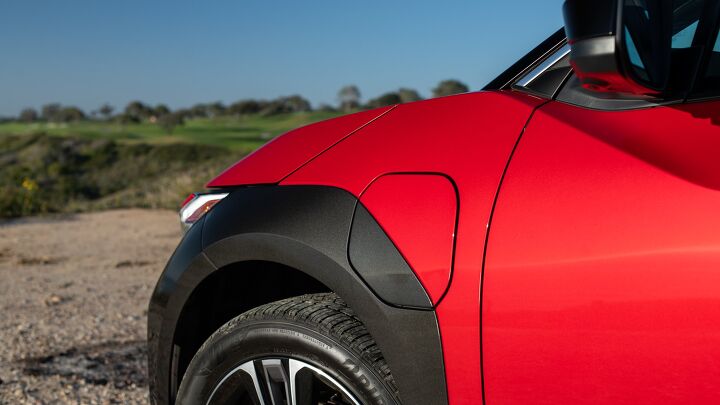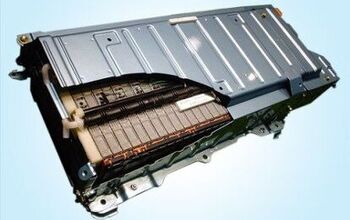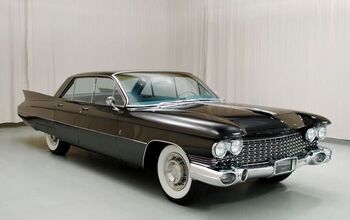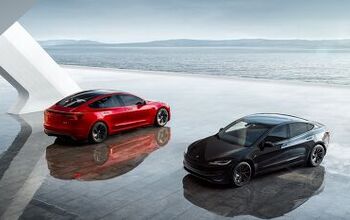Toyota's EV Battery Production Efforts are Looking Up

Toyota may be pushing hard toward more diverse propulsion options instead of solely focusing on EVs, but that doesn’t mean it’s not looking for ways to make headway on electrification. The Japanese auto giant recently announced its acquisition of Primearth EV Energy from Panasonic, which it said would give it a significant boost toward EV battery mass production.
The company already owned 60 percent of Primearth, starting with a 40 percent stake when it was founded in 1996, climbing to 60 percent in 2005. In 2010, Toyota grabbed another 20.5 percent, so this recent announcement only really covers 19.5 percent of Primearth. Some of the automaker’s other partially-owned companies already produce hybrid batteries, and some build PHEV and EV batteries.
Toyota has announced a next-generation battery that it said can deliver up to 500 miles of range. It’s expected to roll the first market-ready units in 2026, and it noted that they would support super-fast charging, with times as low as 20 minutes. That could coincide with a next-gen bZ4X or the expected bZ small crossover’s release.
By 2028, Toyota expects to offer EV batteries with more than 621 miles of range and the same 20-minute charging time. They are also expected to cost 10 percent less than the batteries released in 2026.
Toyota has long promised upgraded batteries, but the automaker has so far not hit its targets, pushing solid-state batteries out as far as 2030. In the meantime, its cautious approach to EVs looks to be paying off, as other automakers have grappled with wavering demand and high costs.
[Image: Toyota]
Become a TTAC insider. Get the latest news, features, TTAC takes, and everything else that gets to the truth about cars first by subscribing to our newsletter.

Chris grew up in, under, and around cars, but took the long way around to becoming an automotive writer. After a career in technology consulting and a trip through business school, Chris began writing about the automotive industry as a way to reconnect with his passion and get behind the wheel of a new car every week. He focuses on taking complex industry stories and making them digestible by any reader. Just don’t expect him to stay away from high-mileage Porsches.
More by Chris Teague
Latest Car Reviews
Read moreLatest Product Reviews
Read moreRecent Comments
- Fred No idea why someone would interested in buying this at the price point. I'm pro-ev but a quick search can pull-up a lot more value at lower costs. I like the Fiat design but I couldn't stomach paying $37k for limited range and a super tight back seat.
- 28-Cars-Later For the you-gotta-be-rich-to-afford-a-cheap-car crowd, Versa is the winner here IMO. Buy it new and pay the $300ish (?) note, but enjoy at least five years with relative reliability assuming historical average miles. Based on MY19, Manheim expects the "S" to be worth $5,975 in roughly five years with "retail" value being $12,650. Nissan and other second or third tier marques will give more on a new trade so assuming 20 OTD with incentives its a 12K/$2,400 depreciation over 5 years excluding interest and it probably could be kept another year or two before the Nissan in it starts to show. Mirage in this comparison is the new buy used on the cheap and run it till the wheels fall off. I'm loathe to compare it to either the Panther or 240 (since I don't believe it could physically last as long as either) but something in the vein of car you could repair yourself on the cheap which was originally intended for Third World conditions. Based on MY19, the ES hatch is worth $4K even with avg miles of 72,740 and "retail" value at $9,650. I personally see it as lot poison and could see savvy buyers making off with one of these near or below wholesale while Nissan is a staple of the subprime crowd and is much easier to finance. MC beings up an interesting contender in the used Chevy Bolt, whose wholesale is $12,050 for MY19 in LT trim with avg lower miles of 33,017. While this is very intriguing, financing is going to be the story here since Nissan or I imagine Mitsubishi could put buyers into half decent rates despite poor credit where a Bolt is "going to the street" and getting whatever high rate is being offered now. Assuming one can handle their own charging, Bolt does offer a lower maintenance cost and used I believe buyers have a higher chance of a white collar professional's commuter condition than what they will find in a used Nissan or Mitsu runabout. The risk to our theoretical buyer IMO is that the Bolt will straight up fail at some point in the future, either not take a charge or even turn on and for the higher wholesale entry point I say the Mitsu is a better choice since it likely won't completely fail and can very cheaply be replaced. Additional: For your kid/nephew/niece/any "middle class" child, I think Bolt is probably the better proposition here but I'd be out of the trade in 36 mos personally. For those truly on their own with no emergency support system, I'd shy away.
- Jbltg It's interesting to note that in the Japan domestic market, where cars are built to order and dealers maintain barely any stock, that there are many, many color options. Really good ones, but no one seems to bite. Most of the cars on the road there are the same boring colors that we have. Go figure.My pet peeve is black interiors. Too depressing, and shows every speck of dust and dirt.
- IBx1 Dealerships flood the market with grayscale cars to commodify them and drive down resale value. Green and yellow cars hold their value best because they cannot easily be replaced, but you can throw a rock and hit fifty shades of gray.
- SCE to AUX Appliances (household and vehicular) have limited color choices, that's why.But today, if you want a crazy color, just buy a plain one and get it wrapped.


































Comments
Join the conversation
Toyota is likely to go full Hybrid long before full EV (if ever) and that requires a lot of batteries so they need the capacity. The promised 500 mile range isn't the biggie, it's the 20 minute recharge time. That might mean you could add enough charge for 200-300 miles in 10 minutes which would end one of the real world problems.
Batteries don't provide range - cars do.
That mythical 621-mile range is 1000 km WLTP, which is more like 520 miles EPA... but what size car do you get for that, and I'll guarantee it's not real-world.
Toyota isn't sincere about EVs, nor tightening lug nuts.